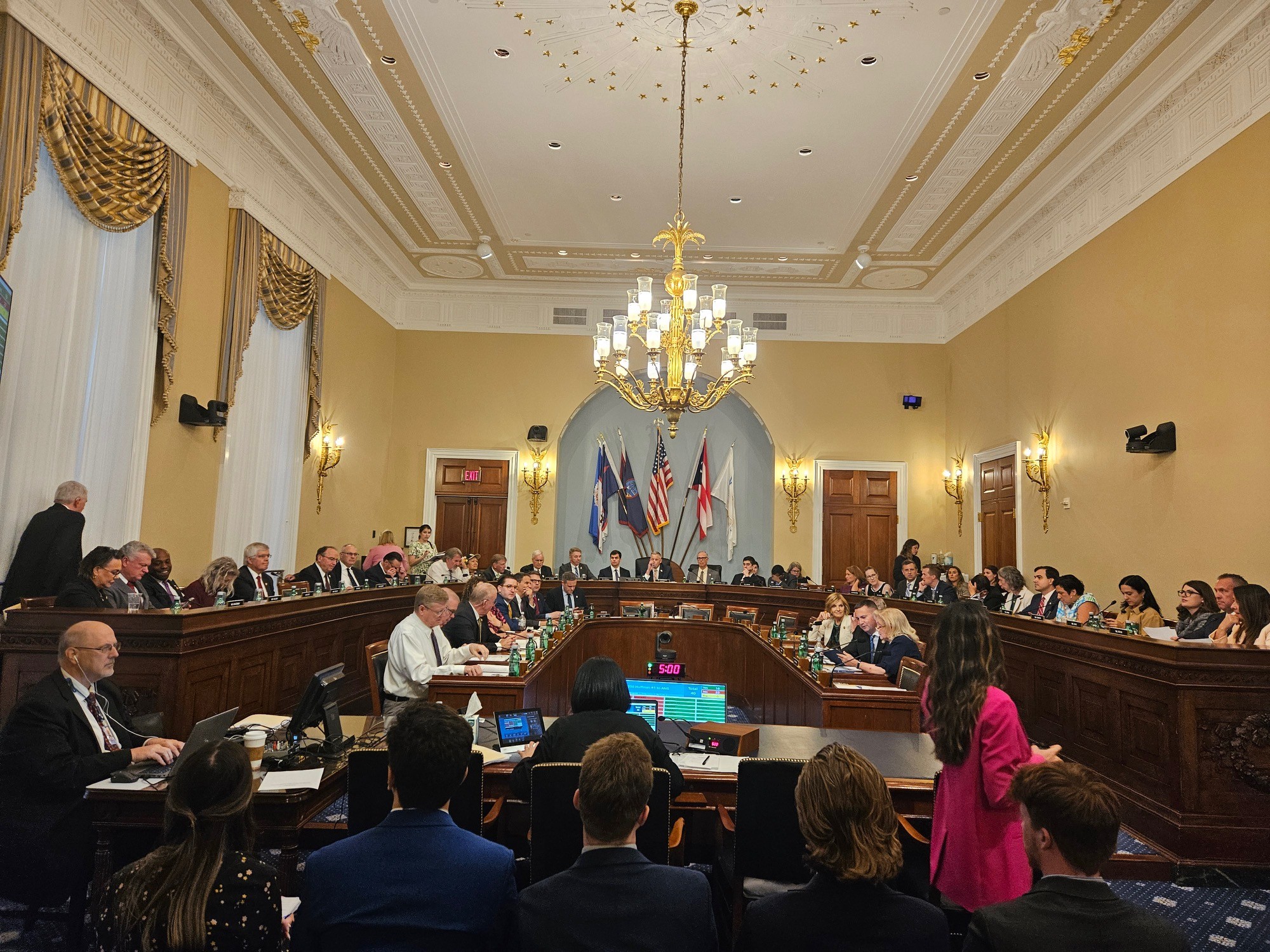Amata Welcomes Volcano Warning System Reauthorization
Committee Passes 19 Bills Including Landslide and Earthquake Programs
Washington, D.C. – Congresswoman Uifa’atali Amata is highlighting Natural Resources Committee passage of H.R. 3176 with her support, which will reauthorize the National Volcano Early Warning and Monitoring System (NVEWS) through fiscal year 2030. This system aims to monitor the most active and hazardous volcanoes to give ample time to evacuate communities in surrounding areas. The bill, introduced by Rep. Nick Begich, R-Alaska, which Amata is cosponsoring, was passed by unanimous consent, as part of the full committee markup of 19 bills Wednesday in the House Committee on Natural Resources.

NVEWS is the national plan to ensure that 170 U.S. volcanoes are monitored based on their threat levels, as developed by the U.S. Geological Survey (USGS) Volcano Hazards Program (VHP) and its partnering state and academic institutions. On March 12, 2019, Congress passed the John D. Dingell, Jr., Conservation, Management, and Recreation Act (Public Law 116–9; 133 Stat. 580), in which Title V, §5001 (43 U.S.C. 31k) authorized the establishment of NVEWS within the USGS, now due for congressional reauthorization. The program has assessed 57 of the volcanoes as most in need of monitoring, including coastal and inland sites in Alaska, Hawaii, and the Northern Marianas.
“In American Samoa, our chief related focus on this important issue is the possibility of a tsunami, and our known volcanic activity in our region is from seamounts,” said Congresswoman Aumua Amata. “I support continuing research and monitoring in this critical field of study including this program so expertise and resources are rapidly available whenever American Samoa might need it, as well as the protection of these other sites and their communities in the vicinity of potential activity.”
In related key actions, the Committee also passed H.R. 3168, the National Earthquake Hazards Reduction Program Reauthorization Act of 2025, introduced by U.S. Rep. David Valadao (R-Calif.), introduced by U.S. Rep. David Valadao (R-Calif.), which reauthorizes the National Earthquake Hazards Reduction Program (NEHRP) through fiscal year 2030. The NEHRP monitors and reports seismic activity data to reduce earthquake risks in the United States.
Similarly, the Committee passed H.R. 2250, the National Landslides Preparedness Act Reauthorization Act of 2025, introduced by U.S. Rep. Suzan DelBene (D-Wash.), which reauthorizes the National Landslides Preparedness Act (NLPA) through fiscal year 2030. The NLPA allows the USGS to gather data that enables states and communities to reduce loss in the event of a landslide, which includes the territories and grant programs. The National Landslide Preparedness Act (P.L. 116-323) authorized a national landslide hazards reduction program and a 3D elevation program within the USGS, broadening the already existing Landslide Hazards Program under the Natural Hazards Mission Area, and the 3D Elevation Program under the National Geospatial Program.
The Committee also passed H.R. 183, the Law Enforcement Officer and Firefighter Recreational Pass Act, introduced by U.S. Rep. Tom McClintock (R-Calif.), which will amend the Federal Lands Recreation Enhancement Act to provide free lifetime public lands passes for law enforcement officers and firefighters.
###